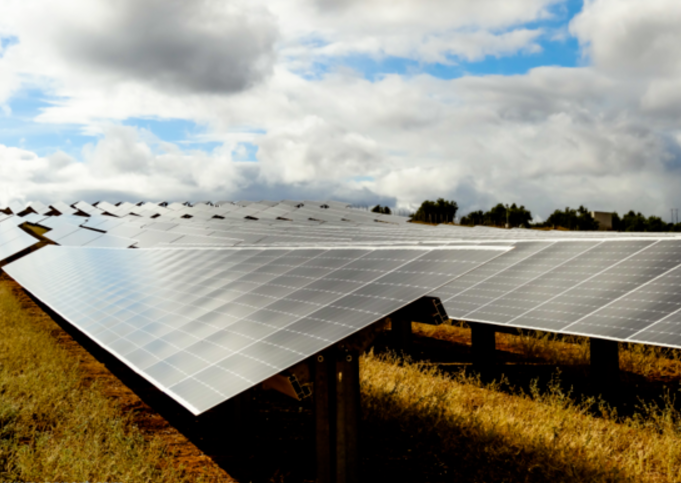Solar radiation is the foundation of solar energy. It is the energy emitted by the sun that reaches the Earth in the form of light and heat. This powerful energy source is harnessed by solar technologies such as solar panels and solar thermal systems to provide clean, sustainable energy. At My Energy Co., we specialize in helping homeowners and businesses maximize their energy savings and reduce their environmental impact through efficient solar energy systems.
What is Solar Radiation?
Solar radiation is the electromagnetic energy released by the sun. It travels through space and reaches Earth in several forms, including visible light, ultraviolet (UV) radiation, and infrared radiation. Solar radiation is the primary source of energy for the Earth, and harnessing this energy through solar technologies allows us to power our homes, businesses, and even entire communities.
Types of Solar Radiation
Solar radiation can be divided into three primary components based on its wavelength:
- Direct Solar Radiation: This is the sunlight that reaches the Earth directly from the sun without being scattered or diffused by the atmosphere. It is the most powerful form of solar radiation.
- Diffuse Solar Radiation: This form of radiation occurs when sunlight is scattered by the atmosphere and reaches the Earth's surface indirectly.
- Reflected Solar Radiation: Some solar radiation is reflected off surfaces such as clouds, buildings, and the Earth's surface.
How Solar Radiation Powers Solar Energy Systems
Photovoltaic (PV) Solar Panels
Photovoltaic (PV) panels are the most common method of converting solar radiation into electricity. These panels are made of semiconductor materials that absorb sunlight. When sunlight strikes the photovoltaic cells, it causes electrons to move, creating an electric current. This electricity is then used to power homes and businesses.
Solar Thermal Systems
Solar thermal systems use solar radiation to heat water or air, which can then be used for heating or even for generating electricity through steam turbines. These systems are often used in large-scale energy generation, as well as for water heating in residential and commercial settings.
The Benefits of Solar Radiation as an Energy Source
Renewable and Abundant
Solar radiation is a renewable resource. As long as the sun shines, we can harness its energy to produce electricity, which makes it a sustainable and long-term energy solution.
Eco-Friendly
Solar energy production creates no greenhouse gas emissions, making it one of the most environmentally friendly energy sources available. By utilizing solar radiation, we help reduce our reliance on fossil fuels and decrease our carbon footprint.
Cost Savings
By investing in solar energy systems, homeowners and businesses can significantly reduce their electricity bills. Solar energy allows you to generate your own power, minimizing reliance on expensive utility providers and offering long-term savings.
Energy Independence
Solar energy offers greater control over energy production. With the right systems in place, you can reduce your dependence on the grid, and in some cases, even become energy independent, especially if combined with energy storage systems like solar batteries.
The Role of Solar Radiation in Solar Energy Efficiency
The efficiency of solar panels depends on how well they capture and convert solar radiation into usable energy. Factors like the angle of the panels, location, and weather conditions all impact the amount of solar radiation that reaches your system.
Maximizing Solar Radiation Efficiency:
- Proper Panel Positioning: Solar panels should be installed at an optimal angle to receive the most sunlight throughout the day, depending on your geographical location.
- Energy Storage: Excess energy generated during the day, when solar radiation is most abundant, can be stored in batteries for later use, ensuring a constant power supply even when sunlight is not available.
- Innovative Solar Technologies: New technologies, such as bifacial panels and solar tracking systems, are being developed to maximize the capture of solar radiation, improving the overall efficiency of solar energy systems.
The Future of Solar Radiation and Solar Energy
Solar technology continues to advance, and the way we harness solar radiation is becoming more efficient with each innovation. Key trends include:
- Improved Solar Panel Efficiency: Researchers are developing more efficient solar cells that can convert a larger portion of solar radiation into usable energy.
- Energy Storage Solutions: As battery technology improves, storing solar energy for use during cloudy days or at night becomes easier and more affordable.
- Smart Solar Systems: Integration with smart grids and home automation allows for more precise control of energy production and consumption.
Conclusion
Solar radiation is a powerful, renewable energy source that plays a key role in solar energy systems. By harnessing the sun's energy through photovoltaic and thermal technologies, we can reduce our reliance on fossil fuels, save on energy costs, and lower our carbon footprints. At My Energy Co., we are committed to helping you harness the full potential of solar energy.
If you’re interested in learning more about how solar radiation can power your home or business, contact us today. Let us guide you toward a brighter, cleaner, and more sustainable future with solar energy!





Comments